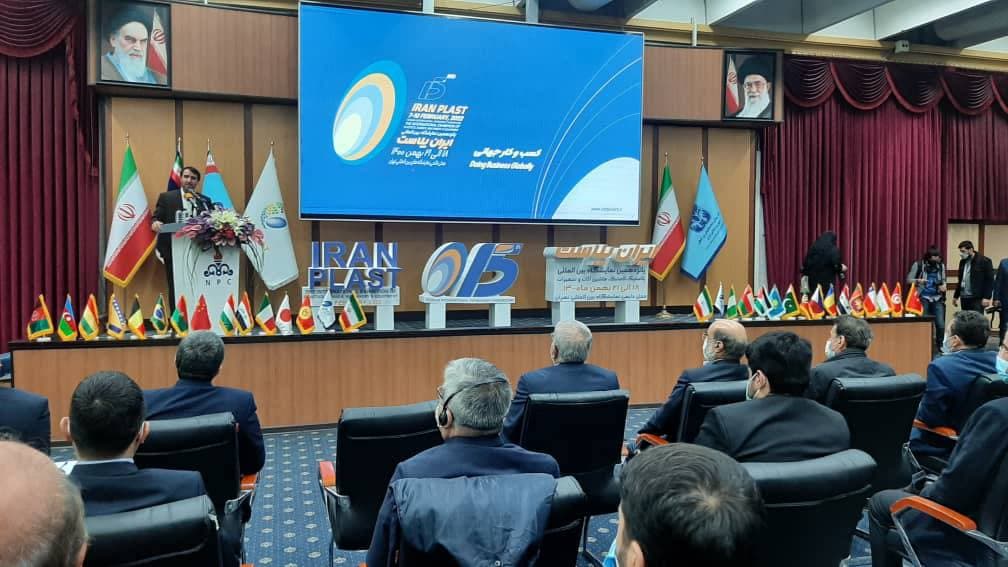“The production of petrochemical products early after the Islamic revolution was 1.5 million tons that mostly covered chemical fertilizers, urea and ammonia. But today, this figure has reached 99 million tons of a variety of products including polymer, aromatic, chemical products and the supply chain,” Owji said at the opening ceremony.
He added that Iran holds more than 153 billion barrels of extractable oil and 33 billion cubic meters of extractable natural gas adding that the national petrochemical production will hit 140 million tons by March 2022.
The exhibition is attended by 430 Iranian and foreign companies and aims to help develop the downstream petrochemical industries and increase production of petrochemical products.
Iran Plast has attracted participants from 15 countries, despite the coronavirus pandemic and the United States’ sanctions on Iran’s energy sector.
These are companies and trade as well as political delegations from such countries as China, Brazil, Hungary, the Azerbaijan Republic, Taiwan and Iraq.
Iran produces eight million tons of polymer products every year and this makes it a key hub for petrochemicals.
This also makes Iran Plast an opportunity for commercial interactions, exchange of the latest technical achievements and the development of downstream petrochemical industries.
